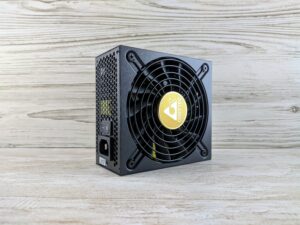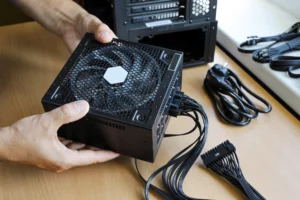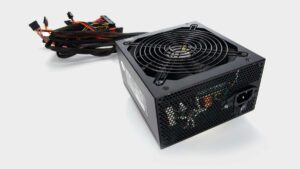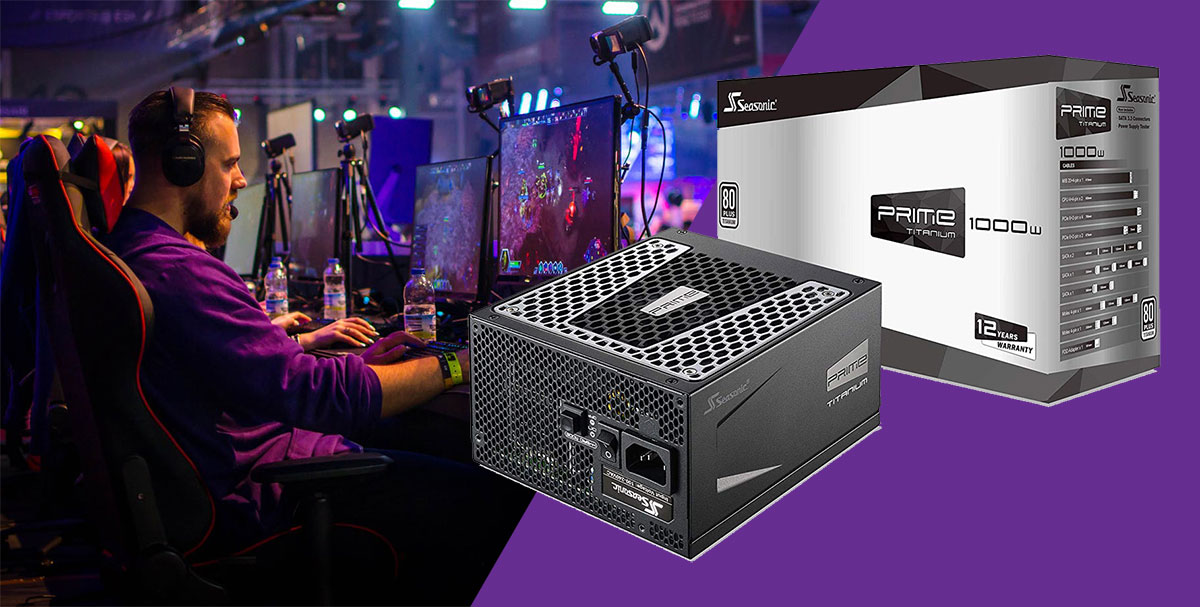
Introduction
Are you in the market for a new PSU? Choosing the perfect power supply unit (PSU) is crucial for the optimal performance and longevity of your computer. With so many options available, it can be overwhelming to make the right choice. In this article, we will guide you through the process of selecting the perfect PSU for your needs. Whether you are a gamer, a professional, or a casual user, we have got you covered with essential tips and factors to consider. So, let’s dive in and explore the world of PSUs!
When it comes to choosing the perfect PSU, there are several important factors to keep in mind as it is a major part of gaming PCs as well. In this section, we will discuss the key considerations that will help you make an informed decision.
Key considerations that will help you make an informed decision
Power Requirements: Determine Your Wattage Needs
One of the first things you should consider when selecting a PSU is the power requirements of your system. The wattage of your PSU determines how much power it can deliver to your computer components. To determine your wattage needs, you should take into account the power requirements of your CPU, GPU, motherboard, and other peripherals.
Efficiency Rating: Opt for Energy Efficiency
Energy efficiency is another crucial aspect to consider when choosing a PSU. A higher efficiency rating means that the PSU can convert more of the AC power from your outlet into DC power for your computer components, resulting in less wasted energy. Look for PSUs with 80 Plus certification, such as 80 Plus Bronze, Silver, Gold, or Platinum, as they offer higher efficiency levels.

Form Factor: Ensure Compatibility
PSUs come in different form factors, and it’s important to choose one that is compatible with your computer case. The most common form factors for desktop PCs are ATX, Micro ATX, and Mini ITX. Ensure that the PSU you choose matches the form factor of your case to ensure a proper fit.
Modular vs. Non-Modular: Simplify Cable Management
Modularity refers to the ability to detach and attach cables from the PSU. Modular PSUs offer the advantage of better cable management, as you only need to connect the cables you require for your system. On the other hand, non-modular PSUs have all the cables permanently attached. If you value a clean and organized build, a modular PSU is the way to go.
Brand Reputation: Trustworthy Manufacturers
When it comes to PSUs, it’s important to choose a reputable and reliable brand. Trusted manufacturers often have better quality control, higher build standards, and more reliable warranties. Look for well-known brands such as Corsair, EVGA, Seasonic, and Thermaltake, as they have a proven track record in the PSU market.
Cooling and Noise: Keep it Cool and Quiet
Efficient cooling is vital for a PSU to maintain its performance and longevity. Look for PSUs with a reliable cooling system, such as a large fan or multiple fans, to ensure optimal heat dissipation. Additionally, consider the noise level of the PSU. PSUs with quieter fans or fanless designs can contribute to a more pleasant and quieter computing experience.
Safety Features: Protect Your Components
Protecting your components from power surges, short circuits, and other electrical issues is crucial. Look for PSUs that offer safety features like over-voltage protection (OVP), under-voltage protection (UVP), over-power protection (OPP), and short-circuit protection (SCP). These features help safeguard your valuable components from potential damage.
Connectivity: Assess Your Peripheral Needs
Consider the number and type of connectors and cables you require for your system. Ensure that the PSU you choose has enough SATA, PCIe, and peripheral connectors to accommodate all your components and peripherals. It’s always better to have a few extra connectors for future upgrades.
Price and Budget: Find the Right Balance
Price is often a significant factor in any purchasing decision, and PSUs are no exception. Set a budget for your PSU and look for options within your price range. While it’s tempting to opt for the cheapest PSU available, it’s important to find a balance between price and quality. Investing in a reliable and high-quality PSU can save you headaches and potential component damage in the long run.
Warranty: Peace of Mind
A solid warranty is an indicator of the manufacturer’s confidence in their product. Look for PSUs with extended warranties, preferably three years or more. A longer warranty period provides you with peace of mind, knowing that you are covered in case of any issues with your PSU.

FAQs about Choosing the Perfect PSU
1. Should I choose a PSU with a higher wattage than what my components require?
It is generally recommended to have some headroom and choose a PSU with a slightly higher wattage than what your components require. This allows for future upgrades and ensures that your PSU is not operating at maximum capacity all the time.
2. Can I use a PSU with a lower efficiency rating?
While you can use a PSU with a lower efficiency rating, it is advisable to opt for a higher efficiency PSU. Higher-efficiency PSUs tend to generate less heat, have lower energy costs, and offer better reliability.
3. How do I know if a PSU is compatible with my case?
Check the specifications of your computer case and look for the supported PSU form factors. Match the form factor of the PSU with your case to ensure compatibility.
4. Are all modular PSUs fully modular?
No, not all modular PSUs are fully modular. Some PSUs may be semi-modular, which means that certain cables are permanently attached, typically the motherboard power cables.
5. Can I mix and match PSU cables from different brands?
It is not recommended to mix and match PSU cables from different brands, even if they appear to be compatible. Each PSU model has specific pin configurations and voltages, and using incompatible cables can damage your components.
6. Are higher-priced PSUs always better?
While higher-priced PSUs often offer better quality and more features, it’s not always necessary to go for the most expensive option. Assess your needs, consider reputable brands, and find a PSU that offers a good balance between price and performance.
Conclusion
Choosing the perfect PSU is a critical decision when building or upgrading your computer. By considering factors such as power requirements, efficiency rating, form factor, modularity, brand reputation, cooling and noise, safety features, connectivity, price, and warranty, you can make an informed choice. Remember to prioritize reliability, compatibility, and future-proofing your system. So, take your time, do your research, and select the PSU that suits your needs and budget. Happy computing!

